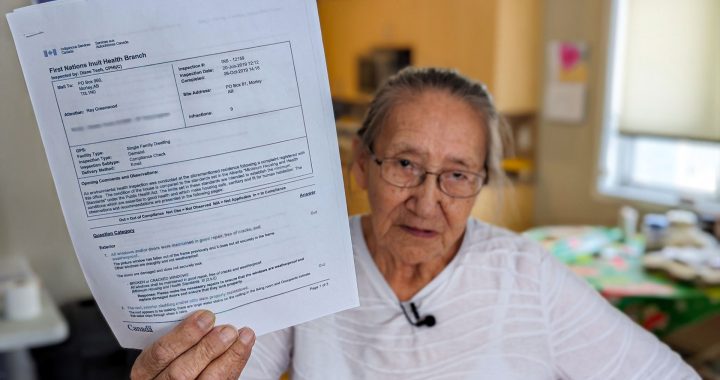APTN National News
Reaction to the long-awaited report on the representation of Aboriginal peoples in the federal prison system came quick and not surprising condemned the federal government.
National Inuit leader Terry Audla called Howard Sapers’ report a wake-up call for those on Parliament Hill.
“The problem of the increasing number of Inuit in our prison systems must be managed better and I call on the federal government to take immediate action,” said Audla.
But it’s a wake-up call on old, long-standing issues.
“Many of these alarming issues have been raised years ago,” he said. “This report makes it clear that the status quo isn’t working and the federal government must engage directly with the Inuit to put in place support for those Inuit who are incarcerated.”
In comparison, Aboriginal peoples make up four per cent of Canada’s population.
The report “confirms the staggeringly disproportionate number of Aboriginal peoples filling our prisons, and the reality that this trend is intensifying at a rapid rate,” said Francis Scarpaleggia, the Liberal public safety critic. “In fact, under the (Stephen) Harper Conservatives’ failed crime agenda, the Aboriginal inmate population has increased by a shocking 43.5 per cent, compared to only a 9.6 per cent increase in non-Aboriginal inmates.”
This independent report comes on the heels of another report last week which pointed to racism and systemic discrimination in the Ontario justice system by Justice Frank Iacobucci.
“There is a crisis for First Nations people, their families and communities in Canada’s justice system and prisons,” said AFN National Chief Shawn Atleo. “With a near 40 percent increase in the incarcerated population of our people in the last decade, it’s time for urgent, substantive and meaningful change.”
Atleo said more investments have to be made in early childhood, elementary and secondary education, as well as, skills training.
Reports aren’t new when it comes to Aboriginal peoples. There’s been many, but as Atleo pointed out no one seems to do anything with them.
That includes a report by the Canadian Human Rights Commission in 2003 on women in the correctional system.
Nothing has really changed said David Langtry, acting chief commissioner of the Canadian Human Rights Commission.
“We are still seeing a disproportionate number of Aboriginal women in solitary confinement, which creates barriers to access to rehabilitation programs,” said Langtry. “As a result, Aboriginal women in corrections do not get paroled early if at all. Not only are they over-represented, they are serving more time. These facts were confirmed by the Correctional Investigator today.”
Sapers’ found one out of three federal female inmates are Aboriginal.
“Female offenders are the most vulnerable inmates. They are twice as likely as male offenders to have a significant mental health diagnosis at time of admission, and they are far more likely than males to self-harm in prison,” said Langtry.
Liberal Aboriginal Affairs critic Carolyn Bennett also pinned blame on Harper and the Conservative party.
“This Conservative government’s reckless policies have exacerbated this glaring overrepresentation-rooted in long-standing social and economic factors, as well as systemic discrimination faced by Aboriginal peoples in our justice system,” said Bennett. “Unfortunately it will continue to worsen given the lack of funding for education and social services on reserves. As National Chief Atleo has counseled, when you open the door to a school, you close the door to a jail cell.”









